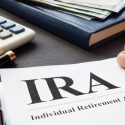Brought to you by Eagle Financial Publications | | Retiree Tax Havens: Which States Really Are the Best | | | SPONSORED  For as long as there have been banks, bankers have been using backwards and shady methods to control your money and gain an unfair monetary advantage. Now, with the Stock Market Correction Plan, you can beat them at their own game. This Free 12-Page guide tells you all those little tips and tricks that big banks want to keep from you and it can be yours today!
Stay Ahead of the Curve From Now on With The Stock Market Correction Plan. CLICK HERE... | | | Fellow Investor,
 Lower state and local taxes are major motivations for many Americans who move to different states. Lower state and local taxes are major motivations for many Americans who move to different states.
But some of them will be surprised because they didn't fully analyze the state taxes.
Taxes are one of the largest retirement expenses, especially when all types of federal, state and local taxes are added.
Before moving, consider all the types of taxes imposed by state and local governments.
It is also critical to look past the big picture to the details of the how taxes change based on types of income, age and other factors.
Retirees can be in a different tax situation than the general population.
A generally high-tax state can be a tax haven for retirees, while a generally low-tax state might not be a haven for retirees.
A number of people moved to where I live in Aiken, South Carolina, for retirement – and low taxes were a factor.
Yet I regularly run into people who, after living here for a while, were surprised by some of their state and local tax bills. Some are pleasantly surprised, and others had less favorable experiences.
Some states and localities balance their tax base, receiving revenue from a mixture of income, property, sales and other taxes.
Other governments depend on one tax for most of their revenue, such as the income or property tax. A person might move to an income tax-free state to escape high state and local income taxes.
Then, the person is surprised to be paying higher sales and property taxes. I've met people who moved from areas where the governments were funded primarily by real estate taxes.
They loved the substantially lower taxes on their homes in South Carolina but weren't so happy to be paying higher sales and income taxes.
To know how much you'll save by moving, consider all the types of taxes imposed by both state and local governments in your current area and the one you're considering.
Examine how the taxes would be imposed on you.
Taxes will vary by person or household depending on age, types of income, property owned and shopping habits.
For example, most states exempt food and medicine from sales taxes while others don't.
Texas often is considered a tax haven because it has no income, estate or inheritance taxes.
But the combined state and local sales tax rate is one of the highest in the nation at a maximum of 8.2% (groceries and prescription medicines are exempt). Motor vehicles are subject to the full sales tax, which can add a lot to the cost of a vehicle.
Texas also has among the highest real estate tax rates in the country and provides much lower exemptions and tax breaks to those 65 and older than some other states.
Washington also has no personal income tax, but its combined state and local sales tax is one of the highest in the nation.
It also has an estate tax on estates worth a little over $2 million (it's adjusted for inflation each year), which is unusual for a state with no personal income tax.
Washington's real estate taxes are about average, but it offers less generous breaks for retirees than many other states.
Florida also has no income, estate or inheritance taxes but doesn't increase other taxes as much as Texas and Washington.
The state sales tax rate is 6%, and localities can add up to 2%, so the sales tax can be steep in some cities and counties. But Florida's real estate taxes tend to be lower than in Texas, and Florida has more generous breaks for those 65 and older.
In general, states without income taxes are tax havens for retirees – but not all of them are.
Many of the states without personal income taxes generate revenue from other sources. Wyoming, South Dakota and Alaska, for example, receive a lot of revenue from the energy industry.
Nevada has the gaming industry as a tax base, and Florida has tourism. It is also important to review taxes in the locality you're considering.
Many states allow a county or city to impose its own sales or income tax (or both) on top of the state rate. Some localities impose the maximum allowed while others charge a lesser amount.
Real estate and other property taxes also tend to be determined wholly or primarily by the locality. The taxes you pay can vary considerably by where you live in a state.
When a state has an income tax, look into the details of how different types of income are taxed. A state with a relatively high income tax rate sometimes is a tax haven for retirees. | |  Brace yourself... because your retirement money is now at risk. It all has to do with a law enacted by the U.S. government, and it's set to seriously eat away at your retirement funds.
Click here for retirement expert Bob Carlson's full write-up, and his #1 strategy for protecting your money through this crisis. CLICK HERE... | | | There are three state income tax breaks for older Americans that are generally available: excluding Social Security benefits; excluding pension payments and retirement plan distributions; and allowing additional exemptions, deductions, or credits for those above a certain age.
Each state with an income tax offers at least one of these breaks to some extent. Some states exempt additional types of income that are important to retirees, such as interest, dividends or capital gains.
Only 13 states don't fully exempt Social Security benefits, and some of them provide a partial exemption or exclusion.
A number of states exempt or give exclusions to other types of retirement income, such as employer pensions, IRA distributions and more. South Carolina, for example, provides an exclusion for up to $10,000 of retirement income.
There's also a deduction of $15,000 for taxpayers who are 65 or older, though the deduction is reduced by the amount of excluded retirement income.
You also might look at gasoline taxes. Florida adds more than 43 cents to each gallon of gas, while South Carolina adds less than 30 cents and Texas adds only 20 cents per gallon.
Some people should review the "sin taxes" such as those imposed on beer, wine, liquor and cigarettes.
For example, Florida has a $2.25 tax per gallon of wine and $6.50 per gallon of liquor. South Carolina tacks on only 90 cents per gallon of wine and $2.75 per gallon of liquor.
Texas adds 20 cents per gallon of wine and $2.40 per gallon of liquor. Be sure to monitor changes. Pennsylvania and Ohio used to be retirement tax havens, offering exemptions for most forms of retirement income and other benefits for those 65 and older. But those benefits were scaled back after the financial crisis.
Be aware of state and local taxes that some call nuisance taxes.
There might be personal property taxes on the values of vehicles, boats, trailers and perhaps other items.
Some local governments impose charges that are included in bills for utility services, such as cell phones, internet and cable television. You might want to consider a few other factors.
Some states and localities have lower taxes because the governments don't provide services that other states or localities do.
These might include regular services such as trash collection or other benefits such as free admission to state and local parks. You'll pay for these in other ways.
Taxes shouldn't be the main determinant of where you live in retirement.
But if you are thinking of relocating for retirement, you should estimate carefully how much you'll pay in total taxes.
Don't rely on a state's reputation or some general commentary. | | To a better retirement,

Bob Carlson
Editor, Retirement Watch Weekly | | | Editor's Note: A shocking new study found that 81% of Americans can't find anywhere safe to put their money. It's a new phenomenon that I call The Retirement Dead Zone… So I've decided to guide you through it with a new book you won't find anywhere else (and which you can get at no charge). And the only place you can get it is here - when you click this link. | | | SPONSORED  Join our FREE live interactive masterclass for traders and we'll share with you at least 3 stock picks.
Click here now to join and get access. CLICK HERE... | | |
Want More Retirement Advice?
Check out my website, RetirementWatch.com, where you'll find hundreds of free articles covering every aspect of retirement planning.
Popular Posts:
Marital Deduction - Dos and Don'ts
The Overlooked Triple Tax Saving Tactic
10 Basic Rules for Every Estate Plan
How to Vary Spending During Retirement
New to the Retirement Watch Community: SeniorResource.com
Sometimes, our dream retirement isn't the one we get. New challenges arise—but now, you're living on a fixed income, and you're no longer a spring chicken. Staying flexible is an essential part of the journey. It's okay to start off on one path and choose another, or take a different road if necessary. Here are 12 changes you may face in retirement…and all the ways you can adjust to them. | | About Bob Carlson:
 Robert C. Carlson is the author of the books The New Rules of Retirement and Retirement Tax Guide, editor and investment director of the popular retirement newsletter, Retirement Watch, and editor of the free weekly e-letter, Retirement Watch Weekly. Bob is a frequent speaker at investment conferences around the country, and you can also hear Bob as a featured guest on nationally-syndicated radio shows, such as The Retirement Hour, Dateline Washington, Family News in Focus, The Michael Reagan Show, Money Matters and The Stock Doctor. Robert C. Carlson is the author of the books The New Rules of Retirement and Retirement Tax Guide, editor and investment director of the popular retirement newsletter, Retirement Watch, and editor of the free weekly e-letter, Retirement Watch Weekly. Bob is a frequent speaker at investment conferences around the country, and you can also hear Bob as a featured guest on nationally-syndicated radio shows, such as The Retirement Hour, Dateline Washington, Family News in Focus, The Michael Reagan Show, Money Matters and The Stock Doctor. | | | | | |
Tidak ada komentar:
Posting Komentar